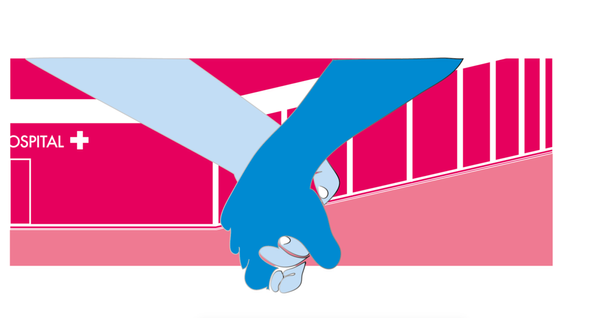The counselling service does not work as advertised
An anonymous student thinks that there needs to be significant change to the services that the college provides for severe mental health problems

Everyone gets stressed at uni at some point. If you don’t, I applaud your Jedi level of inner peace. But for the rest of us mere mortals, it hits at some point. Because it affects everyone, I just assumed that what I was feeling was normal, that my course was always going to be a tough one and it would have its harder moments. For the first year, that was true. I managed the steep learning curve and new social setting with a normal number of bumps in the road. But last summer, and at the start of the winter term, an onlooker would have seen things take a turn for the worse. I, however, didn’t think anything of it for a long time.
I finally got a sense that things were not normal when I was feeling so despairing that I couldn’t move or speak, and getting out of bed was harder than the current run up to exams. I wasn’t learning anything in my lecture courses because I felt like I had no future and that nothing I did would amount to anything. I was avoiding mirrors because my self-image was so bad that being reminded of it would make me want to harm myself. You get the idea.
When the alarm bells finally rang in my head, I contacted the counselling service. It took two weeks to arrange an initial visit. Once I got there and alarm bells rang for them as well, I was prioritised counselling sessions. That took three weeks to happen. So, a month after reaching out in one of the most miserable points in my life, I was greeted with the question, “What would you like to do?” I don’t normally articulate the details of what is running through my head when I feel like shit, but I believe I need the description of the pit I was in to make it clear how much of an unhelpful question that is. “What I would like to do is get better” was what I thought, but ‘get better’ doesn’t really work in the timescale of the seven appointments they offer. Someone like me who saw no way out and no happiness in the future doesn’t know how to get better on their own. I don’t like making sweeping or perversely grandiose statements, but the reality is that there is a good chance that in my position with maybe a few less friends, and a slightly less supportive family, I may have killed myself if all that was there to stop me was the counselling service.
In retrospect, the support they offered me would probably have been good if I had more acute exam stress or just a relatively small bout of low mood. But someone who can’t get out of bed isn’t going to drag themselves to a stress workshop where they can’t share how they feel with a professional, or go back and forth over emails for a month to try and see someone.
Do I think my bad experience is the fault of the people who work there? No. Not at all. They are no doubt trying to offer the best possible care they can to as many students as they can. The time delay between my first email and my first session was due to the under-staffing of the service, which is no doubt oversubscribed because of the high-pressure environment at Imperial. My frustration is, in a sense, not directed at the counsellor that I saw, but at the college for claiming to offer a service to help with severe mental health problems, without employing the correct staff to deal with it. The service is not to help with clinical depression, but with short term issues such as stress. The purpose of the service has been misrepresented, meaning that people like me do not receive the help they need.
Those who need immediate help are put on long waiting lists so that by the time their allotted appointment arrives, the issue has already resolved. Moreover, there is not nearly enough information about other places to get help besides counselling, such as your GP.
If you find yourself agreeing with anything I wrote at the start of this piece, see a GP as soon as possible. If you’re feeling worse than normal but not as bad as what I described, the counselling service may well be fine for you. But, in my opinion, if you feel worse than you ever thought you could, I simply cannot bring myself to recommend making the counselling service in its current form to be your first point of call.
I do want this to change. That’s why I’m writing this. This year has seen many steps forward, including the creation of the Mental Health Officer, but it is not enough. Every student should be involved with improving mental health, as it will affect every one of us at some point in our time here. Until my experience can never happen to another student again, we must continue to campaign for change.








